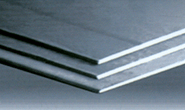Government/Policy

June 6, 2023
Commerce Issues Final Findings in Sunset Review of Plate Duties
Written by Laura Miller
The US Department of Commerce issued the final results of its expedited sunset review of antidumping (AD) duties on steel plate from three Asian countries. The agency found that allowing the duties to expire would result in the continuation of dumping at significant rates.
![]()
This is the fourth sunset review of the AD duties on cut-to-length carbon-quality steel plate from India, Indonesia, and South Korea.
The review was expedited due to inadequate responses from foreign respondents. Domestic steelmakers participating in this sunset review include Cleveland-Cliffs, Nucor, and SSAB.
Commerce found that revoking the import duties would be likely to lead to the continuation or recurrence of dumping at margins of 42.39% for India, 52.42% for Indonesia, and 6.09% for Korea.
The final decision to keep the duties for another five years, or allow them to ‘sunset,’ or expire, is now up to the International Trade Commission, which will soon issue its final injury determination. An affirmative injury determination will allow the duties to remain, while a finding that the domestic industry is not or will not be harmed by removal of the duties (a negative injury determination) will result in the expiration of the duties.
Sunset reviews of AD and countervailing duties, as well as duty suspension agreements, are required by international law to be conducted every five years.
By Laura Miller, laura@steelmarketupdate.com







